Should You Use Coconut Water On Your Skin? Benefits & Risks
It not only hydrates your body but also makes your skin look healthy and supple.
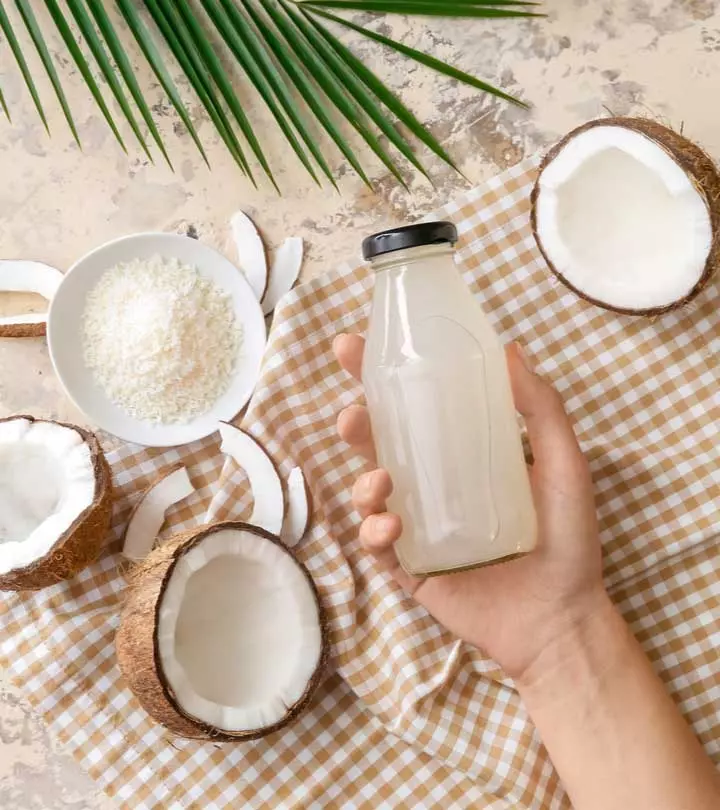
Image: Shutterstock
Coconut water is the ultimate energizer and body coolant during summers. But did you know that you can use coconut water for skin care? It contains vitamins and nutrients and has anti-inflammatory and skin-healing properties. You can drink it or apply it to your skin to reap all its benefits. This natural drink can be super nourishing ,moisturizing and rejuvenating for your skin during the summer. This article discusses everything you need to know about coconut water for the skin, its benefits, and usage. Keep reading to know more!
 Know Your Ingredient: Coconut Water
Know Your Ingredient: Coconut WaterWhat Is It?
Clear, sometimes a little cloudy, sweet water found in a tender green coconut.
What Are Its Benefits?
Topical application may help hydrate skin, reduce wrinkles, and boost collagen production and skin elasticity.
Who Can Use It?
People with dry, sensitive, sunburnt, acne-prone, and dehydrated skin can benefit from it.
How Often?
You can spray coconut water on your skin during the day, whenever required.
Caution
Unless you are allergic to coconut water, it is safe for everyday use.
In This Article
Benefits Of Coconut Water For The Skin

The list of coconut water benefits for overall health is extensive. Learn below how it can help your skin.
- May Soothe Rashes: Topical application of coconut water prevents prickly heati A harmless, pruritic heat rash that occurs when sweat accumulates beneath the skin due to blocked ducts. and summer boils and subsides the rashes caused by smallpox, chickenpox, and measles (1).
- Keeps The Skin Hydrated: The body gets heated up quickly during summers, and the skin can lose its moisture. Drinking coconut water may cool down the body and prevent dehydration and moisture loss from the skin.
- Fights The Signs Of Aging: Drinking coconut water or applying it may reduce the signs of aging. Coconut water contains cytokininsi Plant hormones that influence the stimulation of cell division, and used in skincare for their powerful anti-aging properties. , especially kinetin, which can prevent oxidative damage and delay the processes that speed up cellular aging. This property may have anti-aging effects on human cells. Kinetin is also used in skin care products to treat photo-damaged skin (1), (2).
- May Heal Wounds: Coconut water is used in traditional medicine for its anti-inflammatory, antioxidant, and wound-healing properties (3). It may help in acne management and improve skin complexion.
- May Boost Collagen Development: Coconut water contains vitamin C and lauric acid, which are beneficial to skin health (3). Vitamin C protects the skin from UV damage and the effects of stress and environmental factors. It also boosts collagen development, which keeps the skin youthful (4). Lauric acid has antimicrobial properties that may help manage skin conditions like acne (5).
- May Maintain Electrolyte Balance: Coconut water is a good source of electrolytes – a group of minerals that attract water (3). When you sweat, your body loses electrolytes (during exercise or other physical activity). Maintaining the electrolyte balance helps the body (and skin) retain water and stay hydrated.
Jessica, a blogger, shared her tips for staying hydrated and energetic while on vacation. She writes, “The easiest way to not feel like a 10-pound turd after a night of partying is to drink as much non-alcoholic liquid as you can before going to bed and the morning after. My #1 recommendation is coconut water. It has more electrolytes than plain water, and most brands are better for you than sports drinks because they’re all-natural (i).”
- May Improve Skin Texture: Anecdotal evidence suggests that massaging coconut water on your face can improve skin texture and make it soft and smooth.
- May Help With Skin Pigmentation: Even though coconut water contains essential nutrients like vitamins and minerals, including vitamin C, which may potentially contribute to the treatment of hyperpigmentation, there is a scarcity of rigorous research specifically linking the use of coconut water to the reduction of skin pigmentation (4).
- May Brighten Skin: The slight presence of vitamin C in coconut water may help reduce skin pigmentation and thus brighten your skin, but there has been no scientific research that can establish a direct relation between coconut water and glowing skin. However, according to anecdotal evidence consuming coconut water may help you get bright and glowing skin.
 Trivia
TriviaThere are quite a few ways you can add coconut water to your skin care regimen to get the most of its benefits. Here are a few tips.
Key Takeaways
- Topical application of coconut water subsides the rashes caused by smallpox, chickenpox, and measles.
- People who take heart medication and nonsteroidal anti-inflammatory drugs should avoid daily consumption of coconut water.
- Coconut water contains lauric acid, which may help minimize acne inflammation and heal pimples.
How To Use Coconut Water For Skin

- You can drink coconut water to keep your skin healthy. You may also add it to your drinks, curries, stews, soups, and broth.
- Use coconut water in homemade skin care face packs, masks, mists, and other DIY remedies.
- You can also use cosmetic and skin care products containing coconut water extract.
- Apply coconut water directly to your skin with cotton balls. You may store it in a spray bottle and spritz it on your skin.
- You can mix coconut water with ingredients like honey and aloe vera and use it as a face mask to keep your skin moisturized.
- You can use it as a base for homemade cleansers and toners.
 Quick Tip
Quick TipCoconut water offers numerous skin benefits, but it is important to be aware of safety considerations before incorporating it into your routine. Scroll down to know more.
Safety And Side Effects
While its water is generally safe for most people, those who are allergic to coconuts should not consume or use it. Additionally, coconut water may increase potassium levels, so people on potassium-sparing medications should speak with a healthcare provider before consuming it regularly. As with any natural product, it is important to perform a patch test before applying coconut water to your skin to check for any allergic reactions.
Whether you consume it or apply it to your skin, coconut water can benefit your skin both ways. However, you have to be careful if you are want to drink coconut water regularly. Here is why.
Can You Drink Coconut Water Every Day?
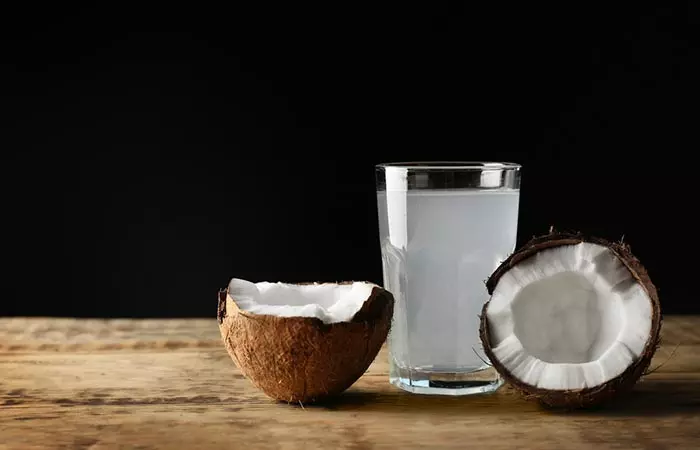
Coconut water is generally considered safe to consume. However, since coconut water contains electrolytes, especially potassium, it may affect your serum potassium levels. So, older adults and people who take angiotensin receptor blockersi A class of drugs used for chronic kidney disease, and to treat high blood pressure and heart failure. , angiotensin-converting enzyme inhibitorsi A class of drugs that help relax the veins and arteries to lower blood pressure and are used to treat heart problems. , nonsteroidal anti-inflammatory drugs, and digoxini A drug used to treat cardiac diseases by lowering heart rate and improving blood circulation in the body. should avoid foods (and drinks) with high amounts of potassium (4).
Many people consider using coconut water to heal pimples. But does it really work? Keep reading to find out.
Can Coconut Water Cure Pimples?
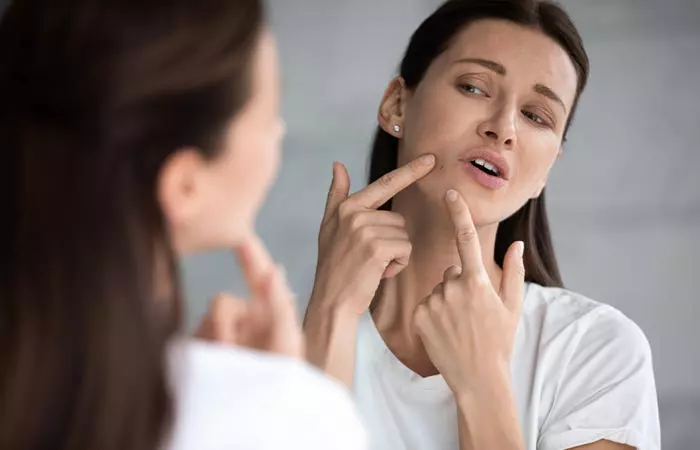
Coconut water may help minimize the inflammation caused by acne.
Coconut water contains lauric acid, an antimicrobial agent, which may help minimize acne inflammation and heal pimples (3), (5). Moreover, it has anti-inflammatory properties that may soothe the pain associated with pimples.
However, if you have severe acne and pimples, it is best to consult a dermatologist and take the proper medications.
Infographic: Benefits Of Coconut Water For Healthy Skin + How To Use It
Coconut water is rich in electrolytes and essential nutrients, which makes it the perfect summer drink. Furthermore, adding coconut water to your life may improve your skin health and overall well-being. Check out this infographic to learn about its benefits and how to use it to get smooth and healthy skin.

Illustration: StyleCraze Design Team
Wrapping It Up
Coconut water is a great summer drink that is beneficial for your skin health. It has antioxidants and anti-inflammatory properties that can minimize the signs of aging, promote wound healing, and maintain overall skin health. Drinking a glass of coconut water can boost your energy levels and maintain electrolyte balance. However, ensure to drink it in moderation as it may spike the potassium levels in your body. Also, if you have an underlying health condition or take NSAIDsi Non-Steroidal Anti-Inflammatory Drugs such as Ibuprofen that are used to relieve body pain, mild fever, and inflammatory conditions. , consult a doctor before consuming coconut water.
Frequently Asked Questions
Is it good to apply coconut water to the face?
Yes, it is good and safe to apply coconut water to the face. It may help improve your skin texture, treat acne, and also has anti-aging properties. However, do not use it if you are allergic to it. Always do a patch test before application.
Can I leave coconut water on my face overnight?
Yes, it is safe to leave coconut water on your face overnight. You may dab a few drops of coconut water on the affected area before bed and wash it off the next morning to get a glowing skin.
How does coconut water help balance the pH of the skin?
The outermost layer of the skin has an acidic pH. Coconut water contains natural acids like lauric acid that helps restore the pH balance of the skin.
What are some DIY skincare recipes using coconut water?
Mix coconut water with witch hazel and lavender oil and spritz it on the face after cleansing, as a toner. Add coconut water to your honey-yogurt face mask or mix it with aloe vera gel to prepare a moisturizer.
Can coconut water be used on all skin types, or are there certain skin types that should avoid it?
Coconut water is a natural and gentle ingredient and is considered safe for all skin types. However, those with sensitive or reactive skin should conduct a patch test before using.
Illustration: Coconut Water For Skin: Benefits And Side Effects
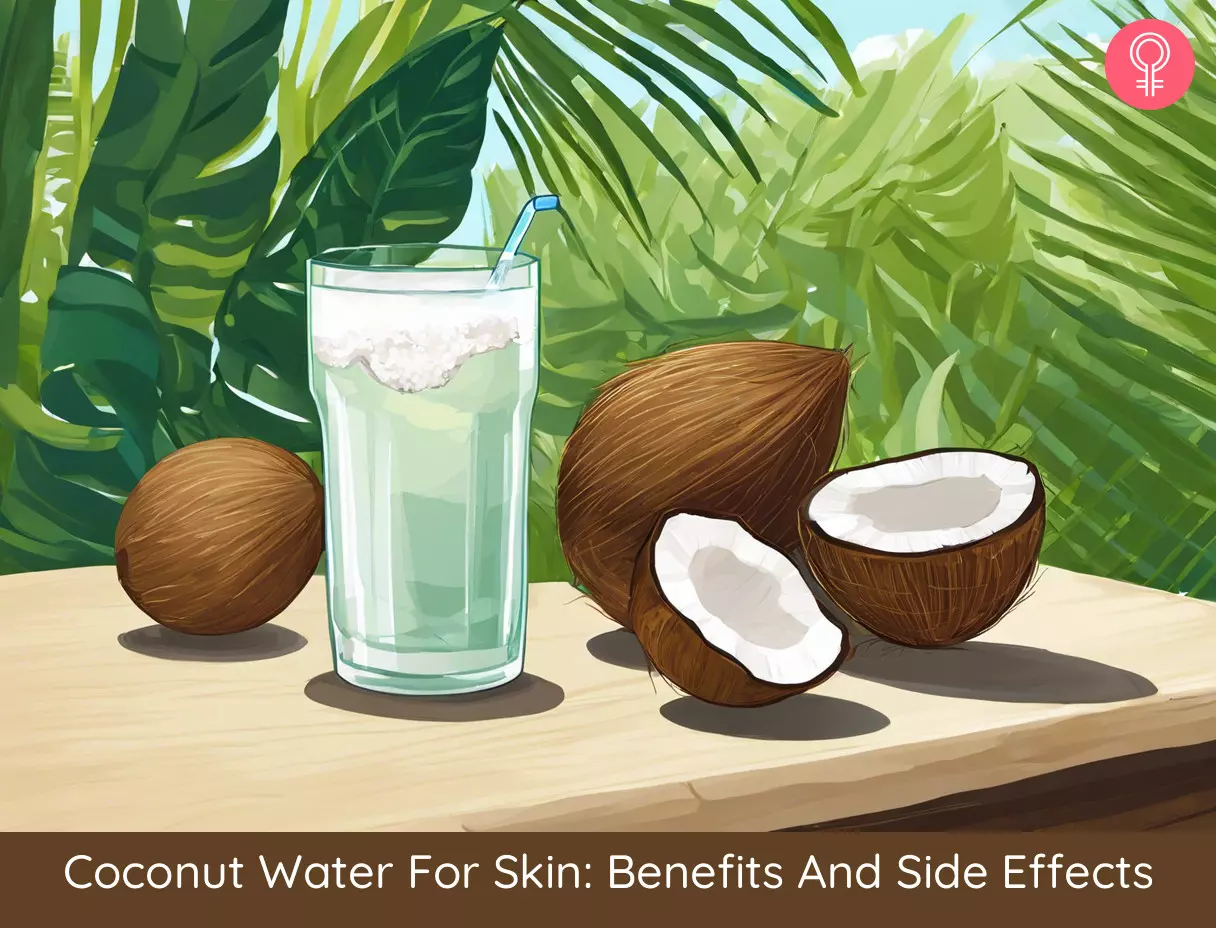
Image: Stable Diffusion/StyleCraze Design Team
Coconut water is a great way to improve your hair and skin health. Click on this video to learn about the reasons why it should be a part of your daily routine.
Personal Experience: Source
StyleCraze's articles are interwoven with authentic personal narratives that provide depth and resonance to our content. Below are the sources of the personal accounts referenced in this article.
i. 8 Secrets To Surviving Your Vacation
https://thehungrytortoise.wordpress.com/tag/coconut-water/
References
Articles on StyleCraze are backed by verified information from peer-reviewed and academic research papers, reputed organizations, research institutions, and medical associations to ensure accuracy and relevance. Read our editorial policy to learn more.
- Tender Coconut Water – Natures Elixir to Mankind
https://www.recentscientific.com/sites/default/files/download_57.pdf - The Chemical Composition and Biological Properties of Coconut (cocos Nucifera L.) Water
https://www.ncbi.nlm.nih.gov/labs/pmc/articles/PMC6255029/ - Therapeutic and Nutritional Values of Narikelodaka (tender Coconut Water) a Review
https://www.researchgate.net/publication/279626208_Therapeutic_and_Nutritional_Values_of_Narikelodaka_Tender_Coconut_Water_-A_Review - Vitamin C in Dermatology
https://www.ncbi.nlm.nih.gov/pmc/articles/PMC3673383/ - Antimicrobial Property of Lauric Acid Against Propionibacterium Acnes: Its Therapeutic Potential for Inflammatory Acne Vulgaris
https://www.sciencedirect.com/science/article/pii/S0022202X15340859
Read full bio of Dr. CP Thajudheen
Read full bio of Anjali Sayee
Read full bio of Ramona Sinha
Read full bio of Shiboli Chakraborti







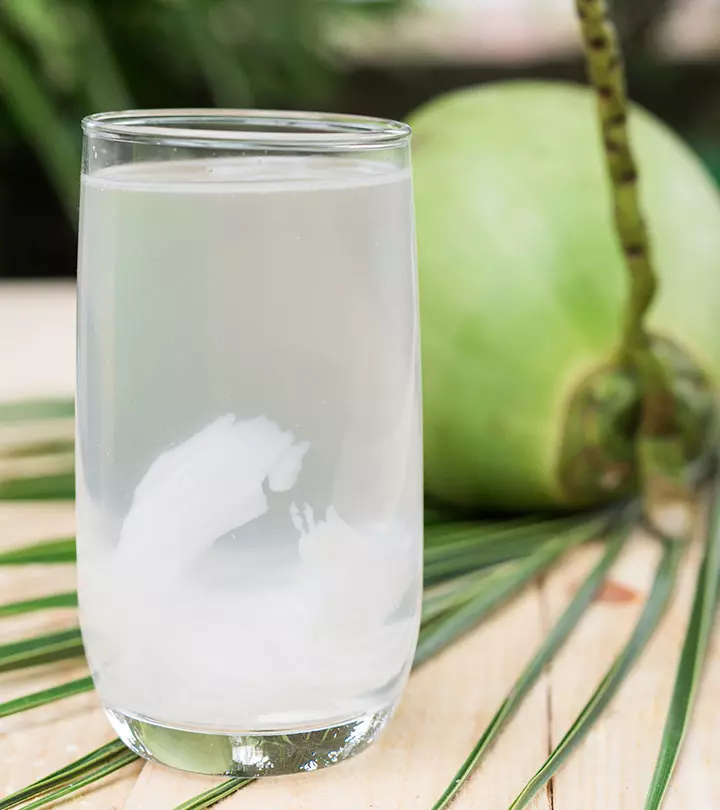

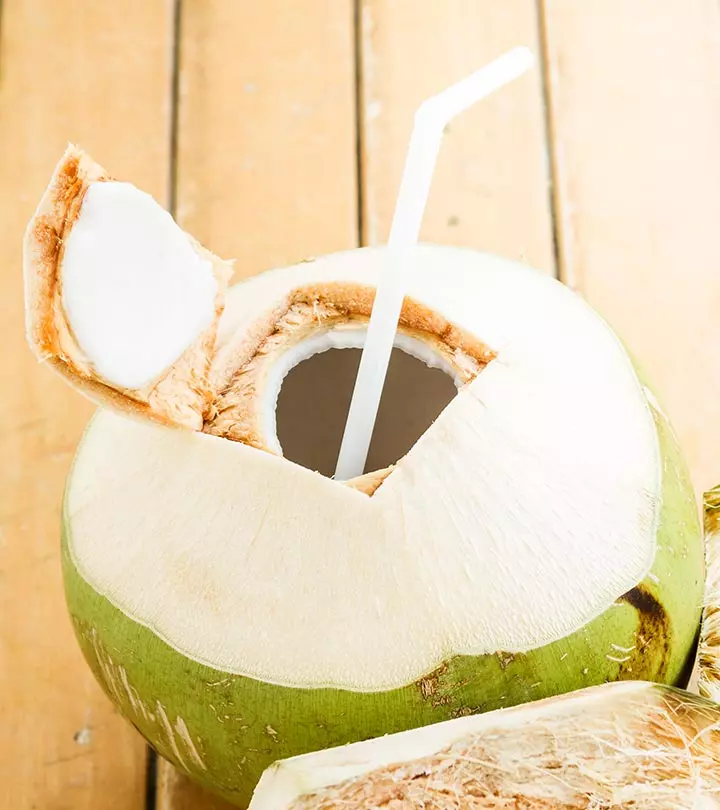
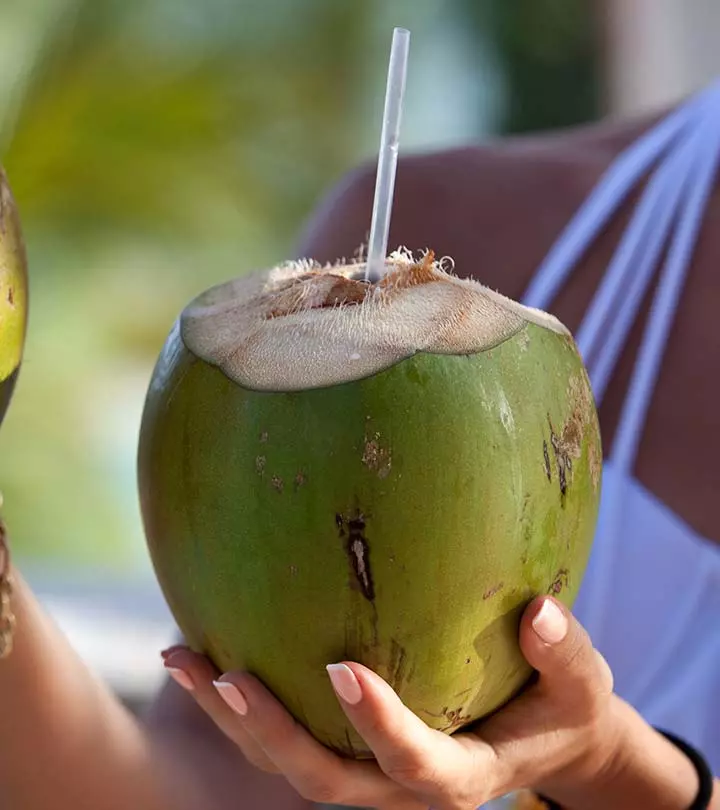
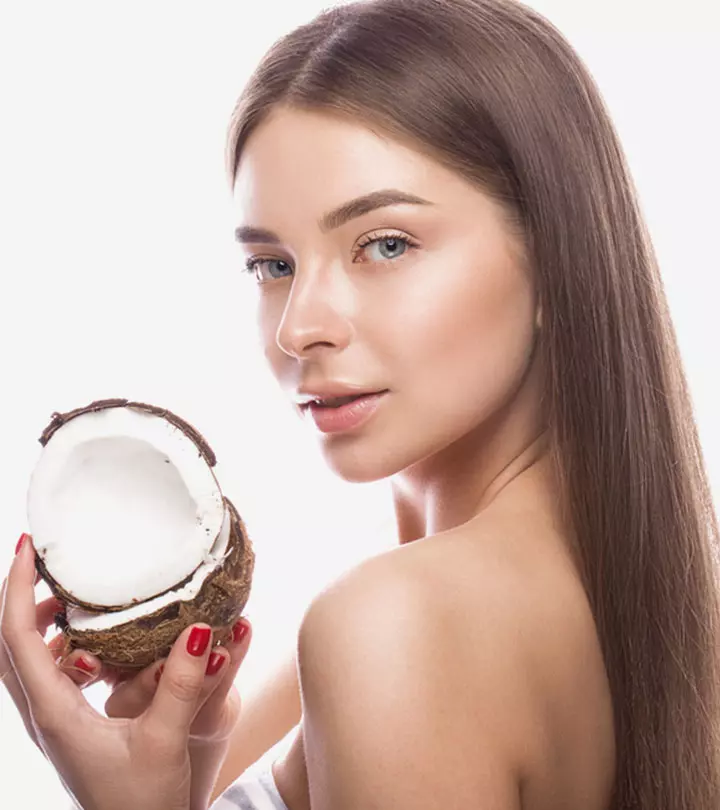
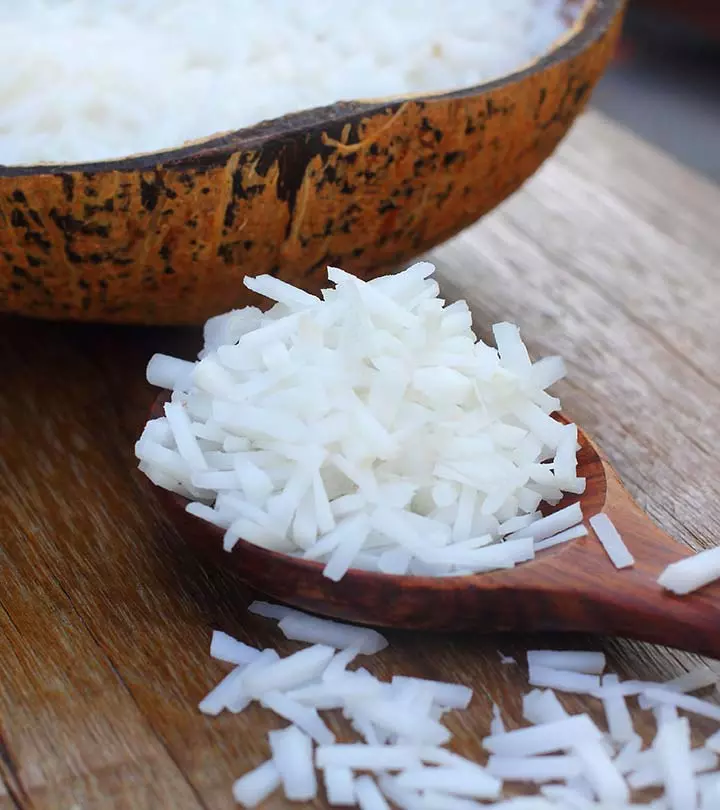
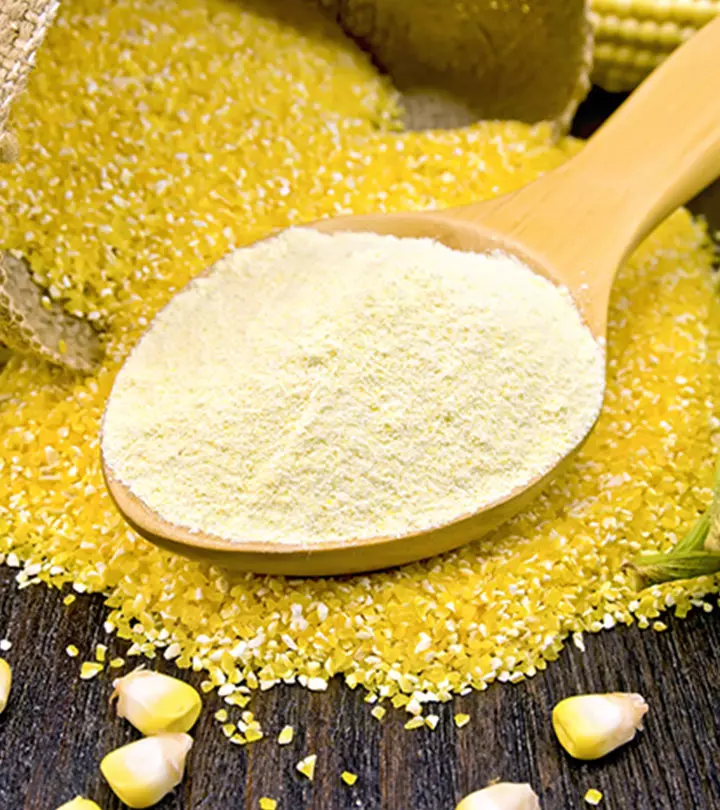
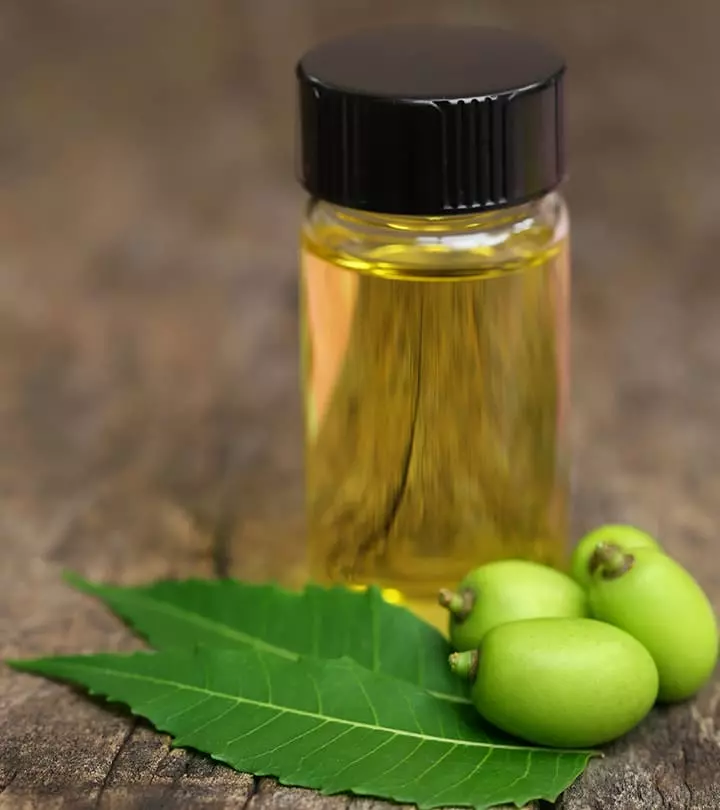
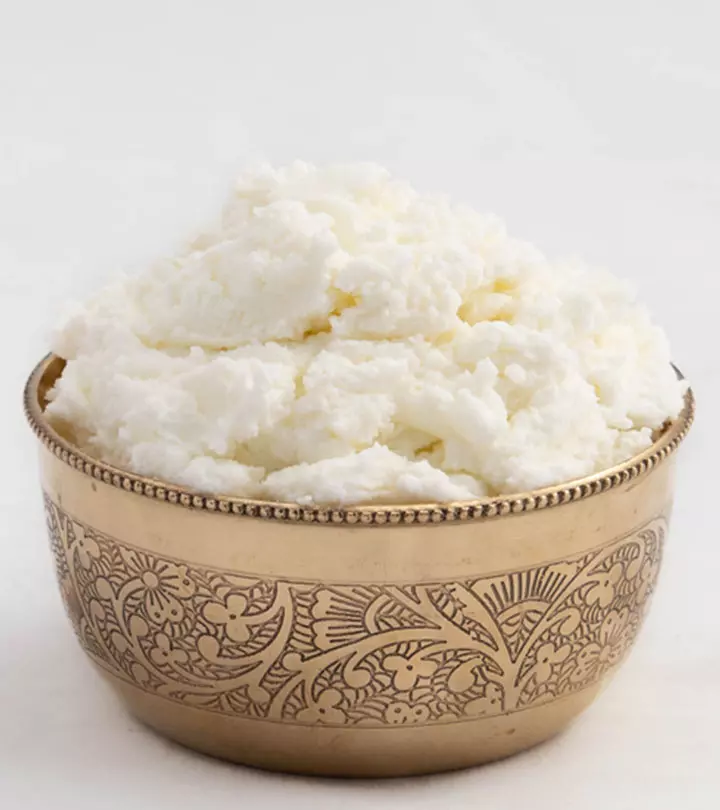
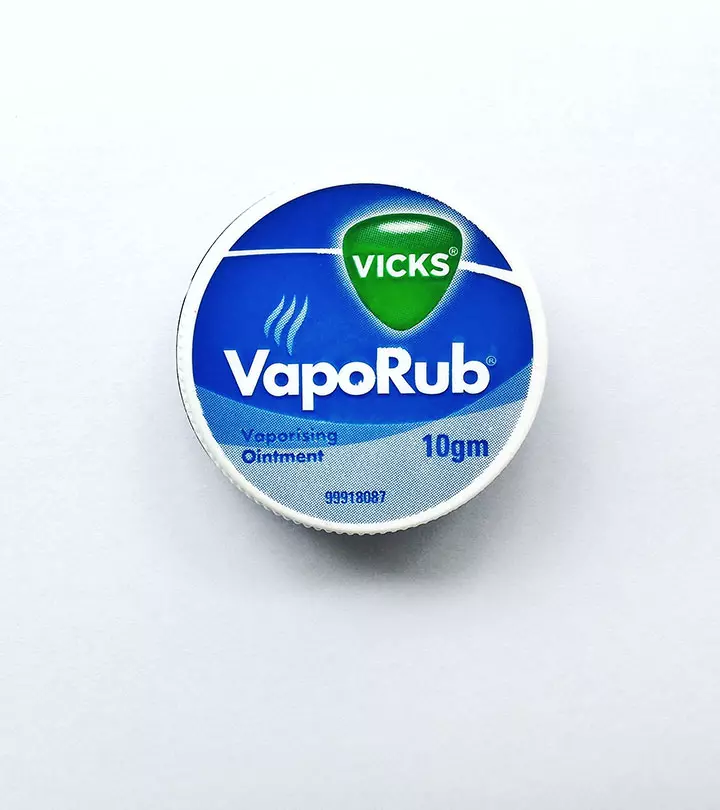
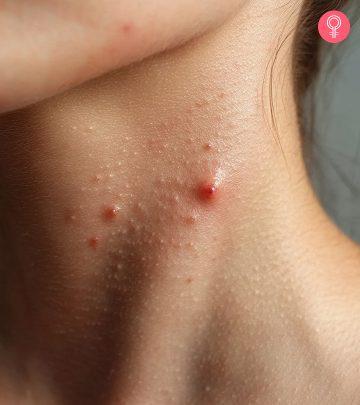
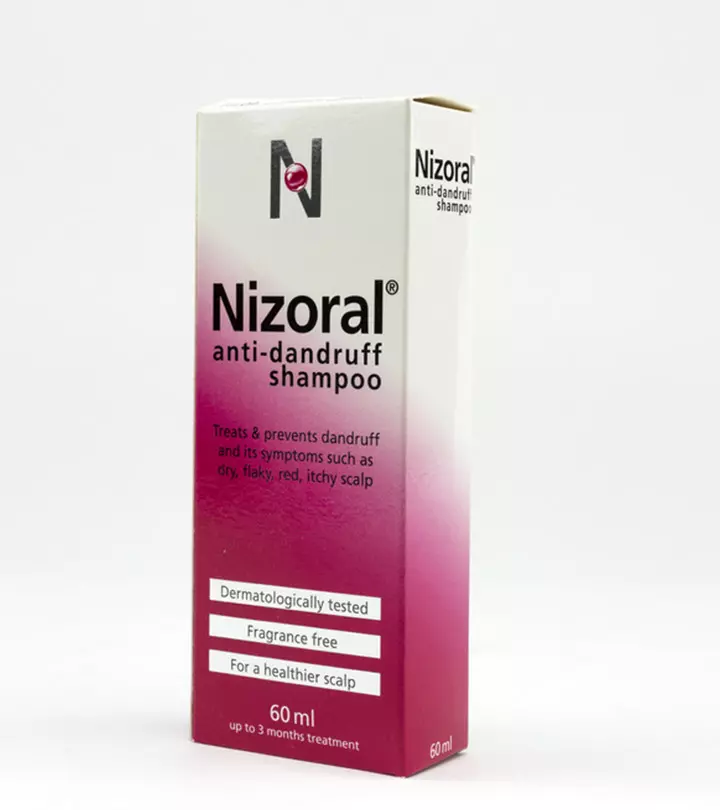


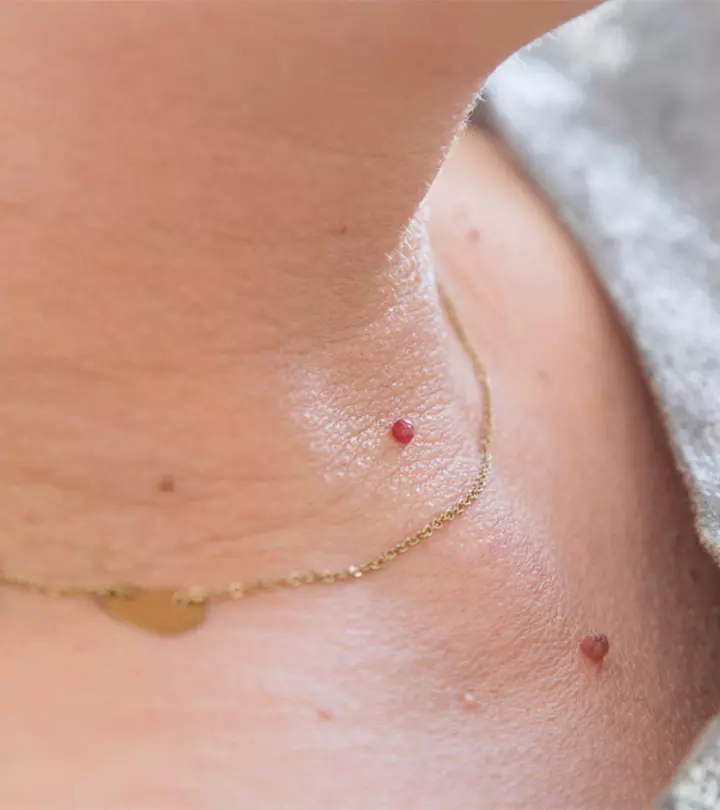


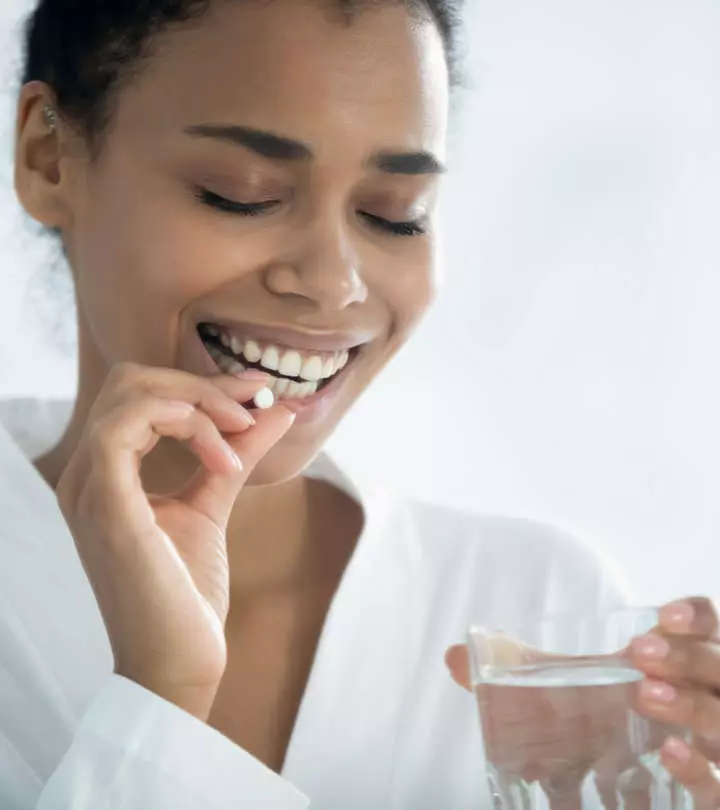
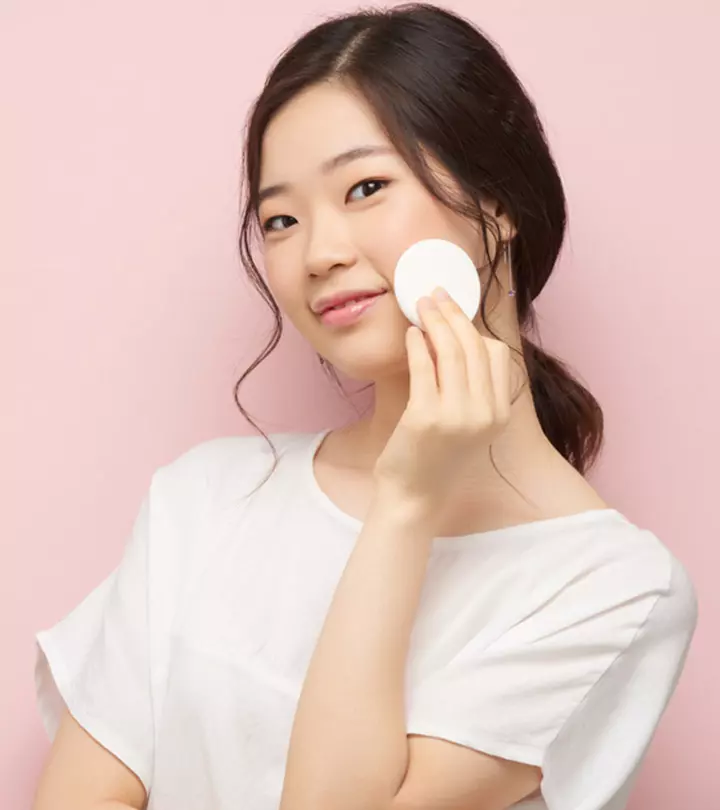

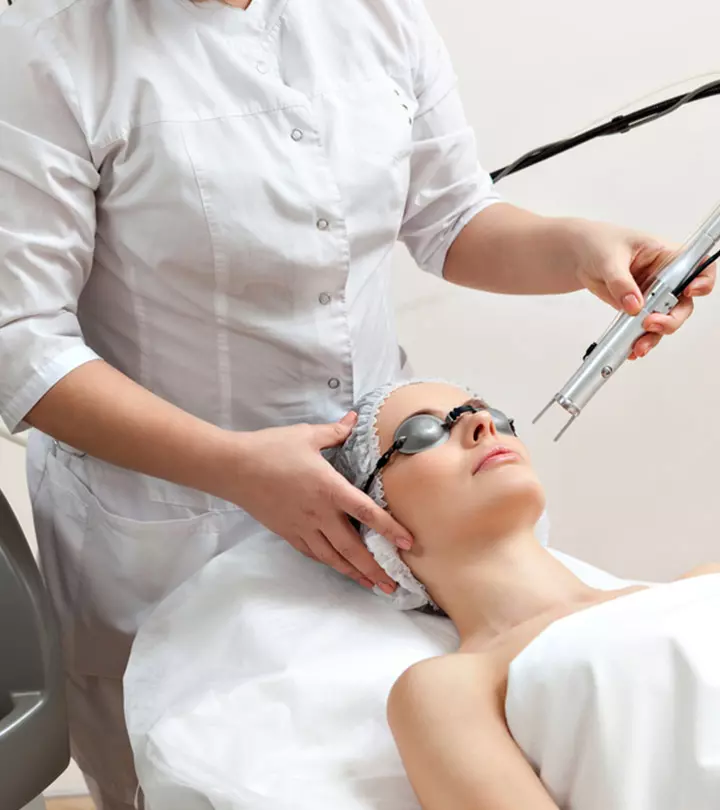
Community Experiences
Join the conversation and become a part of our empowering community! Share your stories, experiences, and insights to connect with other beauty, lifestyle, and health enthusiasts.